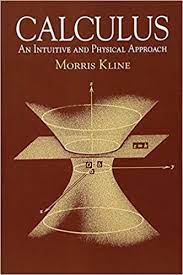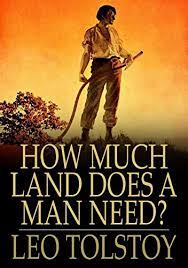An elder sister came to visit her younger sister at a bad college. The elder attended a good college in the big city, the younger was enrolled at a bad college in the village. As the sisters sat over their Chardonnay talking, the elder began to boast of the advantages of the good college: saying how comfortably she lived there, how well they dressed, what fine courses she took, what good things they ate and drank, and how she went to student productions, the student union, and entertainments of many varieties.
The younger sister was piqued and in turn disparaged the life at the good college and stood up for life at the bad college.
“I would not change my course selection with yours,” said she. “We may have chalk boards rather than smart boards, but at least we are free from anxiety. And a calculus course is a calculus course after all.”
The elder sister said sneeringly: “A calculus course is a calculus course? Yes, if you like to share your classroom with students who will go on to study the professions.” When pronouncing this word, she spat. “Engineers, radiation technologists, people of the automotive repair persuasion. Why there aren’t a dozen philosophy, anthropology, or Women’s Studies majors among you.”
“Well, what of that?” replied the younger. “Admittedly many of our courses have applications of the practical kind. But, on the other hand, subsequent employment is assured, and we need not explain ourselves to anyone. While you, at the good college, are surrounded by temptations. It is well known that many of you end up saying, ‘do you want fries with that?’ Such things happen often enough.”
Pahom, the master of the house and the husband of the elder sister, listened to the women’s conversation. “It is perfectly true,” thought he. “Busy as we have been taking advanced courses and signing up for endless extra-curriculars and tiresome travel, we have little enough time to plan for what courses we should take in graduate school and what activities would look best on our CVs. If I knew that I would graduate at the top of my graduate school class I wouldn’t fear any living creature nor any demon, not even the IRS itself.”
Now as it happened, close to the village lived an “advisor.” The advisor promised Pahom that Pahom could take as many courses as he liked in one year. “The more courses you take, the better your chances of being admitted to a good graduate school,” said the advisor, a man called Whiplashsky from whom emanated the smell of brimstone and who drove a late-model cart. Pahom agreed to break up with his girlfriend for whom he had tender feelings and to study assiduously on the weekends. Pahom distanced himself from his homies as well. “I will have time to socialize once I have achieved all my goals,” he said to anyone who would listen. “If only I could take all the courses in the catalogue,” thought Pahom, “I would be independent of the vagaries of the admissions process and there would not be all this unpleasantness.”
Whiplashsky, the advisor, told Pahom that for one million rubles, Whiplashsky could indeed arrange for Pahom to take all the courses in the catalogue in one year. “You will take 61 credits each semester rather than the traditional 15 or 18 credits,” said the advisor. In a low voice, he continued, “I know someone in the registrar’s office.”
On the advice of Whiplashsky, the advisor, Pahom distributed gifts to the bursar, the registrar, the dean of students, the head of maintenance, the assistant librarian, and the executive director of student and community services. There were tchotchkes for all. Tenured professors received scented soaps, coffee mugs, and basketball tickets for the second round of the playoffs.
The registrar was well pleased by Pahom’s gifts. “You can have as many courses as you can walk around in one day,” said the registrar.
“What exactly does that mean?” replied Pahom. “How can a man walk around a college level course? That makes no sense.”
“You try to make a perfect parody of a Tolstoy story from 1886,” said the registrar. “There is enough trouble to be had with the syntax and admittedly the metaphor is not perfect, do you mind? The modern-day author is just trying to make a point.”
Suitably chastened, Pahom lay on his feather bed but could not sleep. He kept thinking about the land or possibly the courses he was to obtain the next day when the morning came. “What a large tract I will mark off. The days are long now and if I walk 30 miles before the sun sets, what a lot of area I can cover.”
The next morning, the sun’s rays had hardly flashed above the horizon, before Pahom began his journey. He walked neither slowly nor quickly. After walking a thousand yards, he stopped and planted a flag of the college. “I will go on another three miles,” thought he, “and then turn to the left. The college courses on this parcel of land would look so attractive on my official transcript.”
After two more hours of walking in the heat and humidity, Pahom saw his homies with his old girlfriend. “Stop and converse with us,” they called. “We are eager to hear of your plans. What will you do when you have fulfilled the requirements of every course in the undergraduate catalog in less time than it takes many of us to decide what to watch on Netflix?”
But Pahom was not dissuaded. Though his feet were blistered and his head was woozy, he continued walking without a backward glance. “What a dweeb,” he thought he heard one of his homies remark. “You are better off without him,” the Homie continued, placing his hand gently on the shoulder of Pahom’s previous girlfriend.
Pahom went straight on for a while. When he looked back his starting point was scarcely visible. The people looked like black ants. Pahom could barely discern the advisor making some calls. “Ah,” thought Pahom, “I have gone far enough in this direction, it is time to turn. Besides, I am becoming somewhat schvitzy and could benefit from a refreshing beverage. If I don’t get back before the sun sets all will have been for naught.” Pahom planted another flag and continued on his journey.
Pahom walked on and on; it was hard walking, but he went quicker and quicker. His parents called out to him, but he ignored them. “What about dinner during the holidays?” his mother cried.
“I must go to a good graduate school,” Pahom called out. “I have no time for homies or girl friends and certainly not for family.”
Though afraid of death, Pahom could not stop. “After having come all this way, they will call me a fool if I stop now.” He threw away his coat and his shoes. He keep only the flags with which he could show how much land he had acquired. “What shall I do,” he thought again. “I have grasped too much, and ruined the whole affair. I can’t get back before the sun sets.”
And this fear made him still more breathless. Phaom went on running, his sweat flowing, his mouth parched. His breast was working like a blacksmith’s bellows, his heart was beating like a hammer, and his legs were giving way as if they did not belong to him. Pahom was seized with terror lest he should die of the strain.
Though afraid of death, he did not stop. He drew near to where the advisor waited counting his million rubles, taking to his real estate investment agent. “Yes, Ibiza is indeed lovely this time of year,” the advisor said nodding. Pahom gathered his last strength and ran on.
The sun was close to the horizon. Cloaked in mist it looked large and red as blood. Now, yes now, it was about to set! The sun was quite low, but Pahom was also quite near his aim. Pahom could see his homies and his ex-girlfriend waving their arms to hurry him up. Somehow Pahom arrived just before the sun set. He had achieved his goal: he had encircled an enormous parcel of land, taken all the courses in the undergraduate catalogue.
Ah, that’s a fine fellow,” exclaimed the advisor. “He has gained much land or perhaps courses—again, the metaphor is not clear.” Just then, Whiplashsky, the advisor, noted that there was blood flogging from Pahom’s mouth and that Pahom was dead. The advisor clicked his tongue to show his pity then went back to making calls, giving advice to others about the value of going to a good college. “Yes, a million rubles might seem like a significant sum,” he said. “But consider the advantages.”
One of Pahom’s homies picked up a shovel and dug a grave just long enough for Pahom to lie in and buried him in it. Six feet from his head to his heels was all he needed.











One thought on “How Much Land Does a Man Need?”
I’m thinking there are Whiplashskys at every “good” high school…